Latest DePIN News
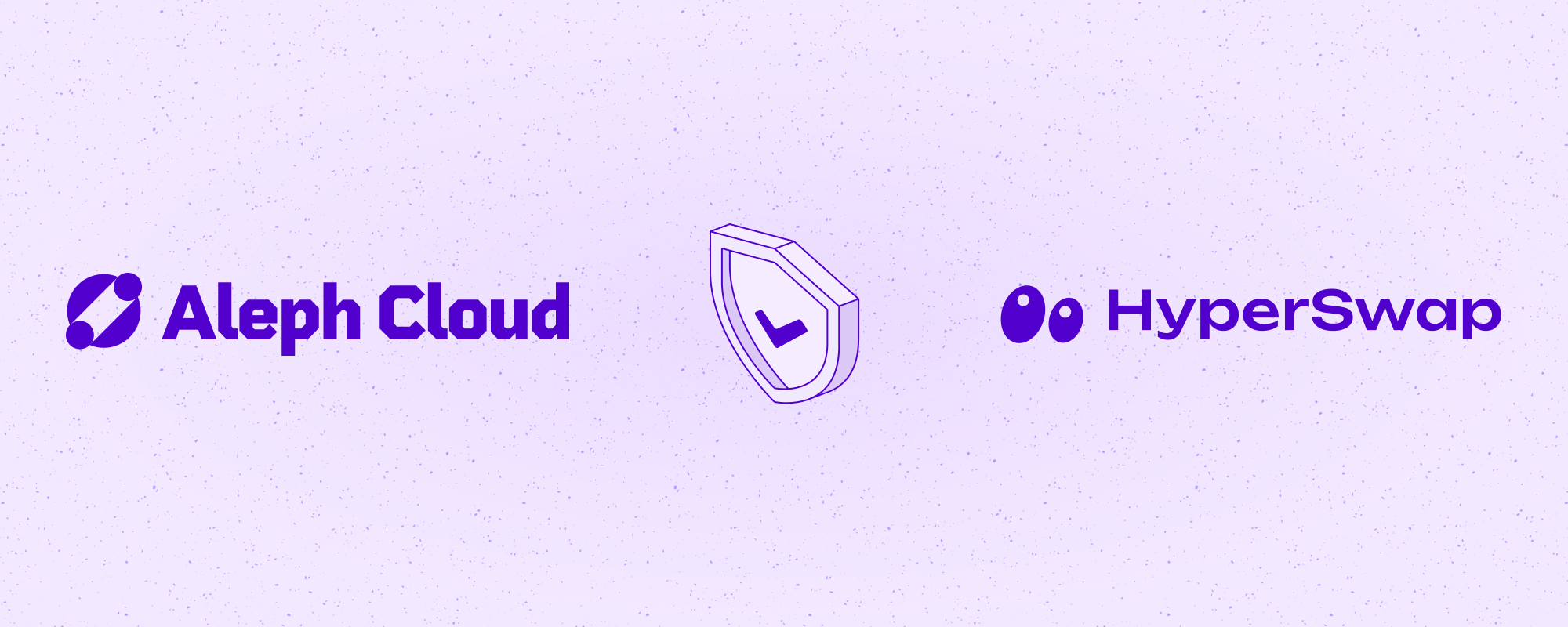
6 months ago
How Aleph Cloud helped HyperSwap mitigate a DDoS attack
On the night of May 5th to 6th, HyperSwap was hit by a massive DDoS attack that impacted both their website and application. As HyperSwap was already using some of our cloud solutions, we quickly stepped in to support them migrating their front-end and redirecting the attack traffic to mitigate its effects.
## TL;DR
* Implemented a custom anti-DDoS solution
* Our team reacted immediately
* Aleph Cloud services remained fully operational
HyperSwap's infrastructure initially lacked a proxy and did not have sufficient protection against DDoS attacks. However, they had deployed a fallback version of their application via IPFS, pinned on our network, in case their main servers were compromised.
Unfortunately, on the night of the attack, HyperSwap’s main server was overwhelmed. While the API remained live, its performance degraded significantly. Their team redirected traffic to our network in an emergency move, which caused some turbulence before we could fully respond.
Meanwhile, our dev team activated our internal anti-DDoS system, offloading attack traffic to a black hole and stabilizing the situation.
> The Aleph team quickly stepped in to support us by ensuring the IPFS-hosted version was accessible, allowing users to continue accessing the app while we worked on mitigation. At the same time, the Imperator team, with their experience in indexing and handling high-throughput environments, acted swiftly and effectively. They immediately understood the situation and deployed the necessary resources to counter the attack, setting up new proxies, implementing alert systems, and reinforcing our infrastructure. — HyperSwap's CTO
On our side, we helped the HyperSwap team migrate their website to our internal anti-DDoS platform and redirected the attack to a black hole. This incident marked the first successful deployment of [Aleph Cloud](https://aleph.cloud/)’s experimental anti-DDoS solution, developed to protect decentralized applications from targeted disruptions.
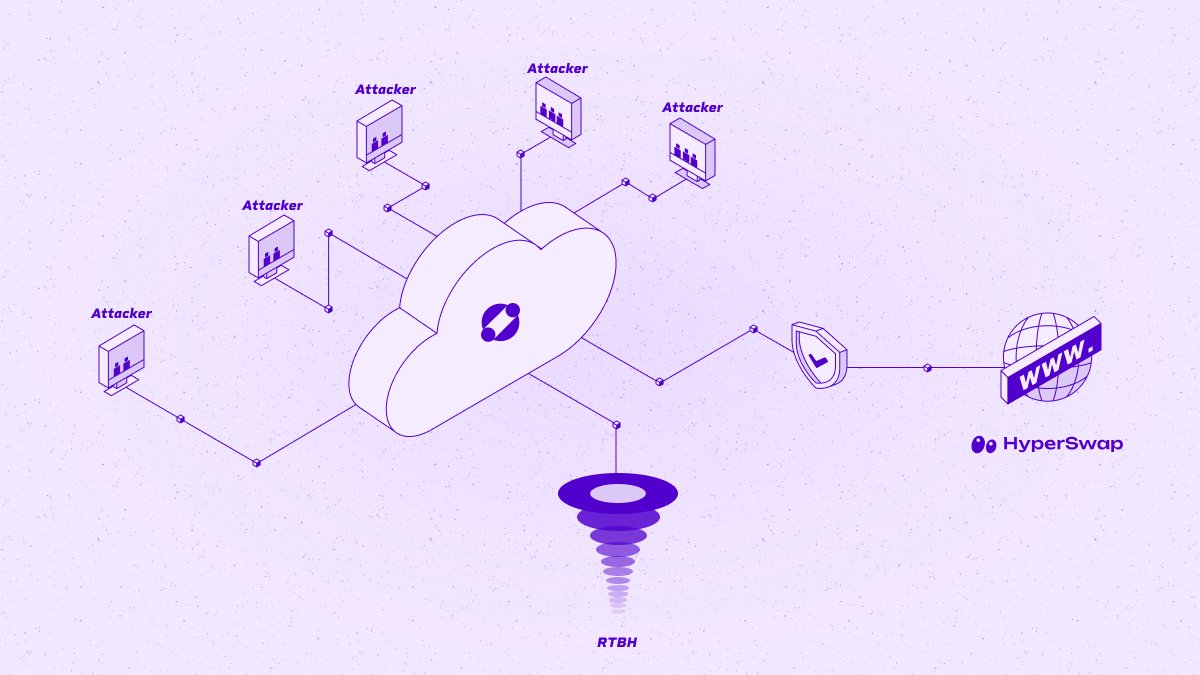
What Is a Remotely-Triggered Black Hole (RTBH)?
RTBH filtering is a network security technique used to mitigate DDoS attacks by redirecting malicious traffic to a null route, effectively making it disappear. Think of RTBH as a trapdoor at your network's entrance: when a flood of harmful traffic is detected, RTBH diverts it into this black hole, preventing it from reaching or slowing down the network and its users.
## What’s Next?
HyperSwap plans to deploy their APIs on Aleph Cloud to create a fully decentralized version of their application, one that’s resilient to future attacks.
We will continue to develop and improve our anti-DDoS solution, which proved effective in this real-world test. This successful mitigation highlights the power of decentralized infrastructure to deliver security, resilience, and true censorship resistance.
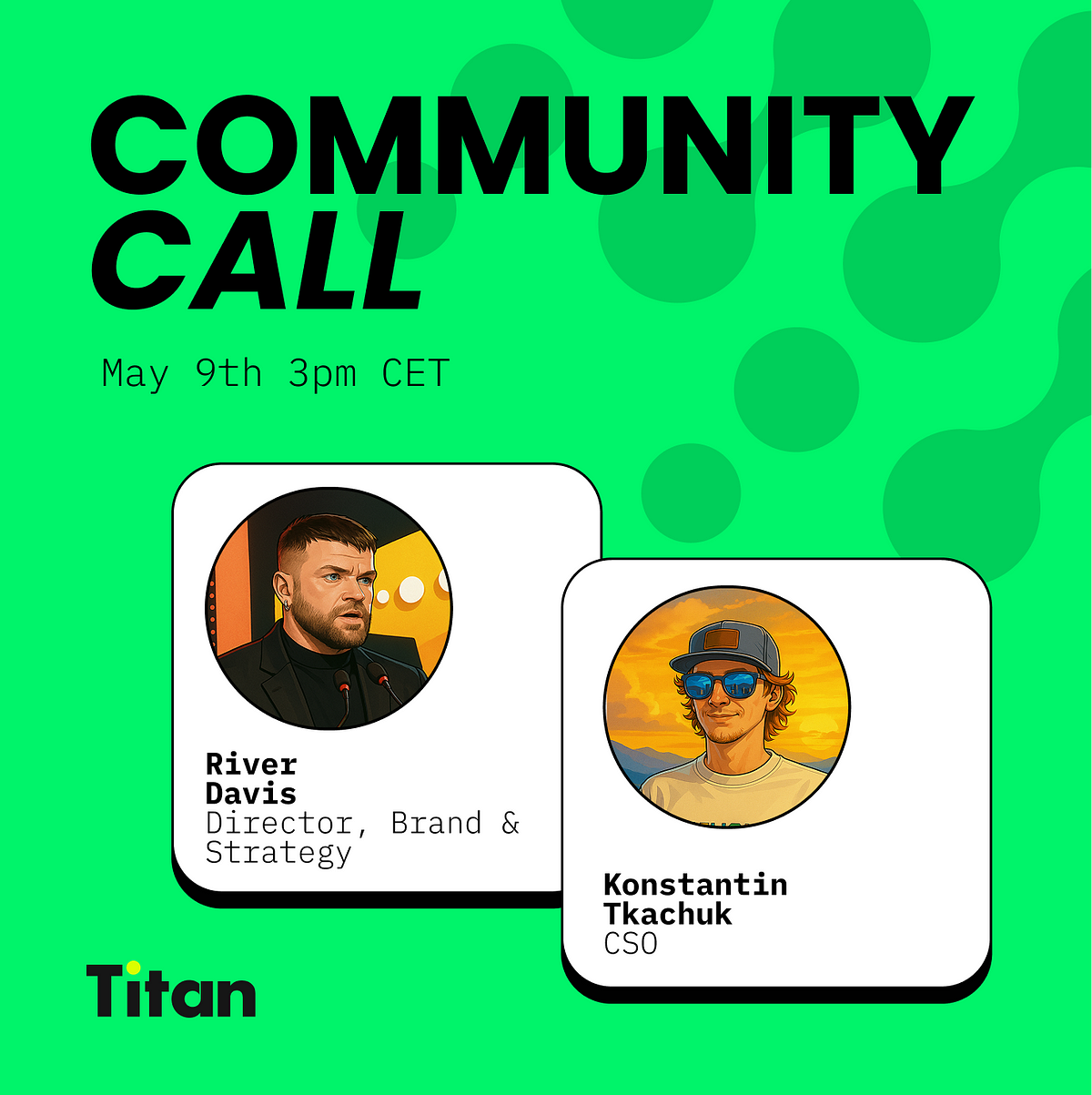
6 months ago
Titan Network's Community Space AMA Highlights Roadmap and Mainnet Preparation
On April 11, 2025, Titan Network held a significant Community Space AMA, focusing on its roadmap progress, technical upgrades, and opportunities for builders and contributors. The session featured project announcements, comprehensive answers to community-submitted questions, and a clear outlook for the path to the mainnet. Key topics included the finalized roadmap, which outlines essential steps leading to the mainnet launch, such as the release of the technical whitepaper, tokenomics paper, exchange pre-approvals, Series A fundraising, codebase finalization, and audit processes.
Titan Network is gearing up for a mainnet launch this year, emphasizing the importance of a secure, fully audited, and functionally complete rollout. The AMA also highlighted updates on Testnet 4, which is now accessible on Windows, allowing for easier node setup. Additionally, the new L1 node optimization plan promises increased rewards for compliant nodes post-mainnet. With TNT4 staking surpassing $1 million in staked tokens and a new cross-chain bridge enabling staking between Solana and Titan chain, the ecosystem is expanding rapidly. The team is also working on merging Testnet 3 and 4, although no specific date has been set yet.
In terms of functionality and infrastructure, Titan's app is undergoing significant upgrades, including UI unification and intuitive node management. The team is exploring ambitious use cases, such as providing CDN infrastructure for major Web2 platforms. Future plans include attending global Web3 events and exploring partnerships in gaming and virtual worlds. The AMA also touched on tokenomics, with plans for dynamic reward adjustments, potential token burns, and governance tools post-mainnet. Community involvement is encouraged through various initiatives, including testing features, content creation, and a potential regional ambassador program, ensuring that Titan Network remains engaged with its user base.
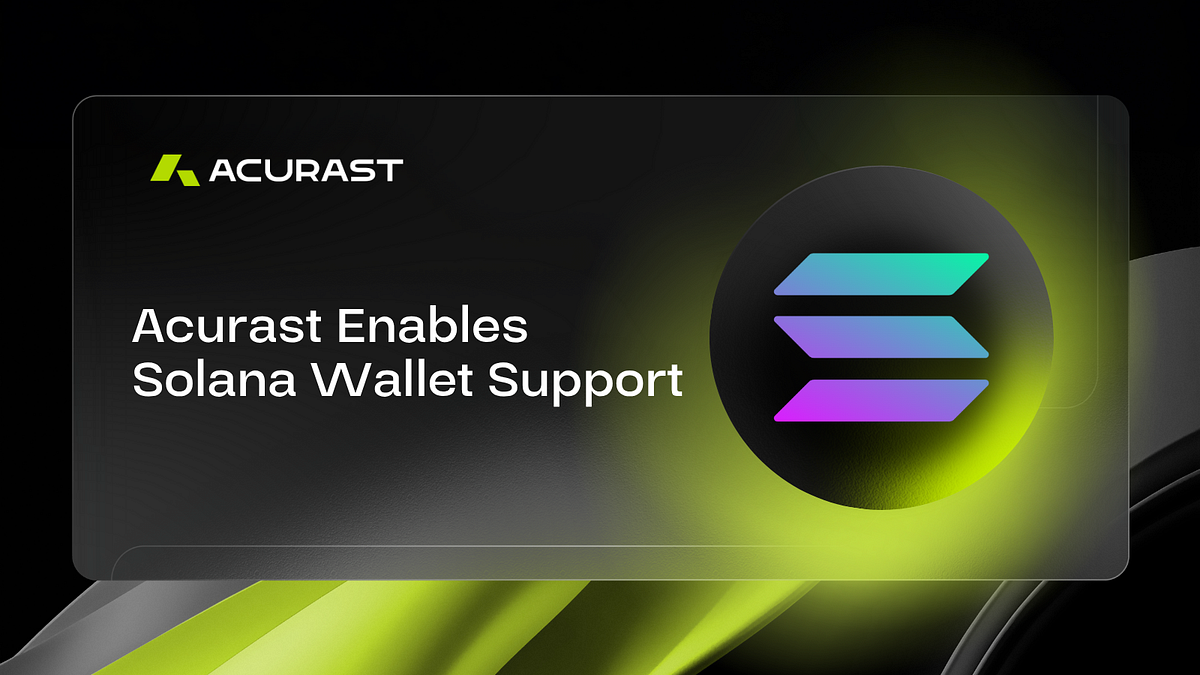
6 months ago
Acurast Integrates Solana Wallet Support to Enhance Decentralized Compute Accessibility
Acurast, a pioneering decentralized compute network based in Zug, Switzerland, has recently announced the integration of Solana Wallet support into its Android and iOS applications. This significant update aims to simplify the onboarding process for new contributors, allowing them to utilize wallets like Phantom to connect their smartphones and provide compute power while earning rewards. With this enhancement, Acurast is not only expanding its accessibility but also reaching a broader audience within the web3 ecosystem. Co-Founder Alessandro De Carli emphasized the importance of inclusivity and ease of access in decentralized computing, stating that the future must be fast and user-friendly.
The core mission of Acurast is to redefine cloud computing by transforming everyday smartphones into secure, decentralized compute nodes. Leveraging Trusted Execution Environments (TEEs) found in modern mobile devices, Acurast offers a scalable and confidential compute infrastructure that operates independently of centralized data centers. With over 65,000 active phones contributing to the network and processing 250 million transactions across 130+ countries, Acurast has established itself as the world's most decentralized compute network, showcasing the potential of community-driven technology.
The integration of Solana Wallets is particularly noteworthy due to Solana's reputation as a fast and cost-effective blockchain ecosystem with a growing user base. This development allows users to quickly connect their wallets to the Acurast Hub, onboard their devices in minutes, and securely provide compute resources. The latest versions of Acurast Core and Acurast Lite are now available on both the Play Store and App Store, making it easier than ever for users to join the movement towards a resilient and community-powered compute network, especially in light of vulnerabilities in traditional cloud infrastructure.
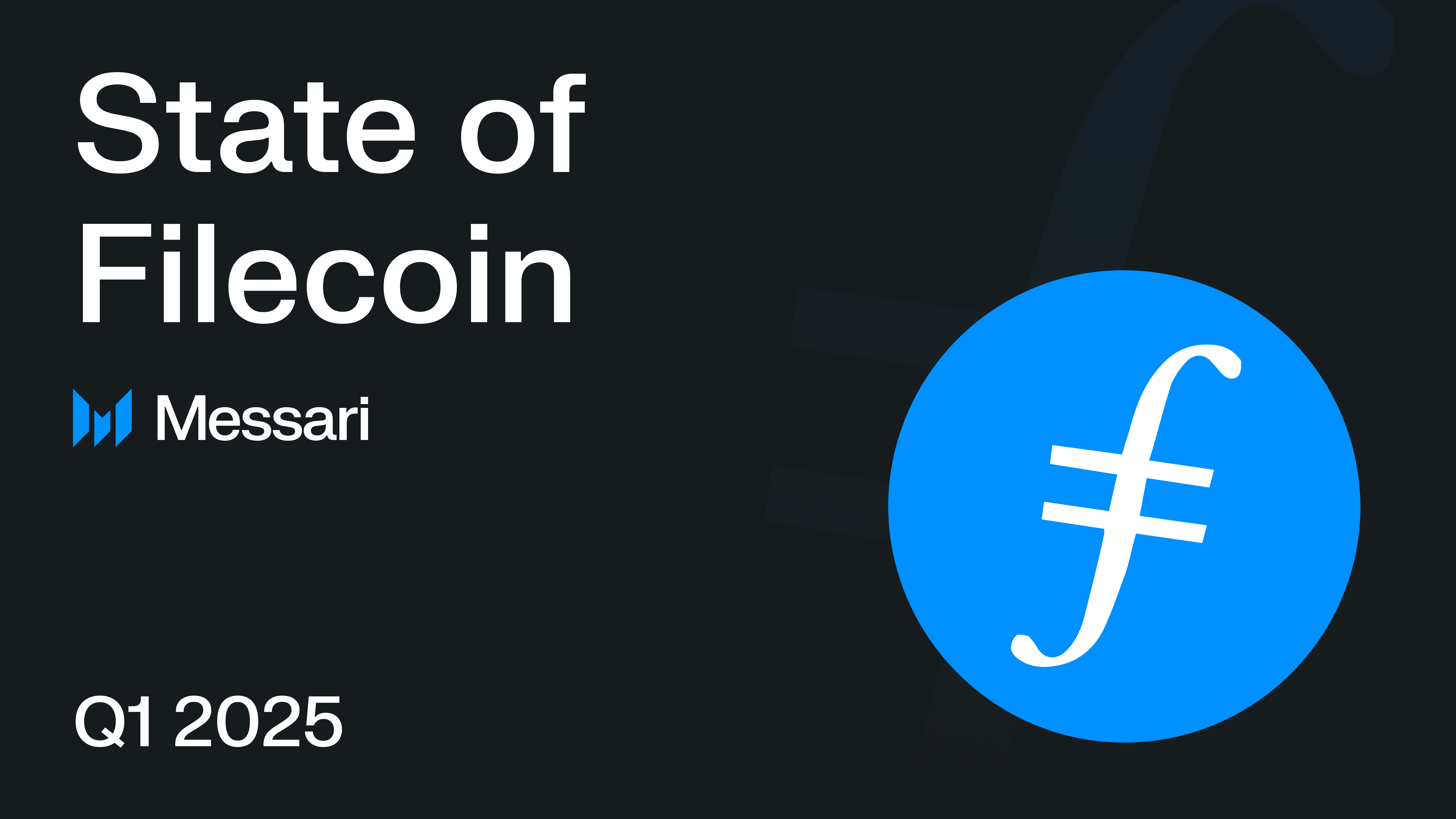
6 months ago
Filecoin's Strategic Shift: Emphasizing High-Value Storage and Ecosystem Growth in Q1 2025
In Q1 2025, Filecoin made significant strides in its evolution as a decentralized storage network, deploying over 5,000 unique contracts on the Filecoin Virtual Machine (FVM) and facilitating more than 3.2 million transactions. The upcoming launch of Proof of Data Possession (PDP) and the Filecoin Fast Finality (F3) upgrade are set to enhance transaction settlement speeds and data verification processes. Partnerships with AI and blockchain networks, including Aethir and Cardano, have further solidified Filecoin's position as a reliable platform for decentralized data storage, while the introduction of FIL ProPGF aims to support public goods development within the ecosystem.
Despite a decline in active storage deals and overall network utilization, which fell to 30%, Filecoin is pivoting towards high-value, enterprise-grade storage solutions. Approximately 1,300 petabytes of data were stored through active deals, reflecting a strategic focus on long-term, quality storage rather than sheer volume. Collaborations with institutions like the Smithsonian and MIT highlight Filecoin's commitment to preserving cultural and academic data, while the introduction of USDFC, a FIL-collateralized stablecoin, facilitates stable payments and DeFi participation without the need to liquidate FIL holdings.
The network's financial landscape also saw a decline, with FIL’s market cap dropping 41% to $1.8 billion amid a broader market downturn. However, engagement with Filecoin-native services remained strong, evidenced by increased FIL inflows. The Network v25 upgrade and the anticipated F3 upgrade are expected to streamline operations and enhance user experience. As Filecoin continues to adapt and innovate, its focus on high-value storage, partnerships, and community-driven initiatives positions it for sustained growth in the evolving decentralized landscape.

6 months ago
Solana's Recovery and the Rise of AI-Driven Projects Bittensor and Unilabs
Solana (SOL) has shown a remarkable recovery, bouncing back 90% from its lowest point this year, yet it remains constrained below the critical resistance level of $180. Analysts are optimistic, suggesting that the Solana price could be on the verge of a significant breakout, particularly as many SOL meme coins have recently surged. The current market sentiment is buoyed by strong fundamentals and an upward trajectory, with SOL hovering around the $170 mark. A decisive move above the $180 resistance could pave the way for a potential rise towards $200 and beyond, possibly reaching levels around $250.
In the midst of this, Bittensor (TAO) has emerged as a notable player, maintaining a steady performance while other cryptocurrencies, including Bitcoin (BTC), have struggled. The interest in Bittensor is largely driven by its innovative approach to decentralized AI, which has gained traction following high-profile events, such as Donald Trump's attendance at a crypto and AI innovators dinner. Currently trading around $457, Bittensor has demonstrated resilience, holding onto gains and reflecting a growing market confidence in projects that integrate blockchain technology with AI.
Meanwhile, Unilabs (UNIL) is gaining momentum as a compelling alternative for investors looking to diversify from traditional layer-1 networks like Solana. With a focus on merging blockchain transparency with AI infrastructure, Unilabs is positioning itself as a leader in the DeFi and AI space. Its innovative model, which includes a token-based incentive system, aims to attract users and developers alike. As Solana's growth stalls, Unilabs presents a unique opportunity for traders, potentially redefining the standards for DeFi AI platforms in a rapidly evolving crypto landscape.

6 months ago
Unilabs Leads the Charge in DeFi with AI-Driven Investment Strategies
The cryptocurrency market is experiencing a resurgence after a recent downturn, with Bittensor (TAO) breaking through its resistance levels and showing promising upward momentum. In tandem, Solana is also showing signs of a potential uptrend, following a period of stagnation. However, Unilabs is emerging as a standout project in this environment, having attracted over $30 million in assets under management (AUM) through its innovative passive income approach. Experts are highlighting UNIL as a project to watch closely in 2025, given its unique offerings in the decentralized finance (DeFi) space.
Unilabs is making waves as the world’s first AI-backed hedge fund manager, designed to give investors a competitive edge in the market. The platform incentivizes users through staking rewards for UNIL tokens and referral bonuses, which have contributed to its impressive AUM. With over 21 million UNIL tokens sold, the project offers access to four investment funds that span Bitcoin, real-world assets (RWA), artificial intelligence (AI), and mining sectors. Additionally, its AI Market Pulse tool provides valuable insights into investment opportunities, while the Memecoin Identification Tool aids high-risk traders in navigating the volatile memecoin landscape.
As the presale continues to gain traction, having already surpassed $114,000, each token is priced at $0.004, with expectations of a price increase in future rounds. Meanwhile, Bittensor has recently experienced a significant price increase, trading at $481 after a breakout above the $460–$470 resistance level. Similarly, Solana has regained momentum, currently trading around $176 after a notable rise. Both projects are capturing market attention, but Unilabs' innovative asset management features are poised to revolutionize crypto investment, making it a key player to watch in the coming months.

6 months ago
Centralized Payment System Stripe Puts DeNet Users at Risk with $200k in Unauthorised Refunds
May 13, 2025 – This month, DeNet, a decentralized storage provider with 4 million users, warned its community of a serious disruption caused by Stripe, a centralized payment processor. According to DeNet, Stripe issued roughly $200,000 unsolicited refunds on DeNet customer accounts without any further profound explanation. Stripe is currently holding back around 25% of DeNet transaction proceeds from the past 3 months, jeopardizing users’ access to services they paid for. This incident highlights the vulnerabilities inherent in centralized systems and reinforces DeNet’s mission to make Web3 accessible, secure, and user-centric through innovative technology and education.
According to DeNet, the disruption began when a user, for some reason, skipped the platform process and requested a $13.72 refund directly from Stripe. Despite refunds initiated by a single user, Stripe initiated a cascade of unsolicited refunds for purchases of storage space, Datakeeper licenses (nodes), and extended functionality within the DeNet app, without any further user requests or any elaborated reasoning communicated to DeNet. Furthermore, Stripe currently retains around 25% of the DeNet transaction volume received via Stripe. DeNet’s attempts to engage with Stripe regarding these unauthorized transactions were met with responses that appeared automated, as they were nearly identical and failed to provide any meaningful explanation or resolution. Critically, after DeNet reached out through various channels, the Stripe team intervened in an initial investigation. However, per DeNet, it had little effect, as Stripe followed with the widespread and random issuance of refunds.
DeNet has processed payments via Stripe for over a year, maintaining transparent user relationships. However, Stripe’s track record with other projects shows issues like frequent abuse, lack of impartiality, and poor communication. Its opaque decision-making and unexplained logic raise concerns. Is this a deliberate structure by Stripe’s leadership or a systemic failure?
“We’re deeply disappointed by Stripe’s actions, especially as we’ve worked tirelessly to make Web3 welcoming for all”, said Rafik Singatullin, co-founder at DeNet. “The fiat payment option was introduced to empower users, not expose them to centralized overreach. This strengthens our resolve to deliver decentralized solutions and educate our community”.
DeNet is forced to launch alternative payment methods to ensure its users receive the service they paid for, despite Stripe’s arbitrary actions. Users can check the DeNet app to see if they’re affected and restore their purchases.
About DeNet
DeNet is a programmable decentralized storage protocol that unlocks the global potential of unused storage through tokenized RWA capacity. With 4M users, 250K daily active devices, and 15M+ files, it’s a leading operational solution for future storage needs.
Contact:
For inquiries related to this incident or further information, please contact DeNet at legal@denet.pro.
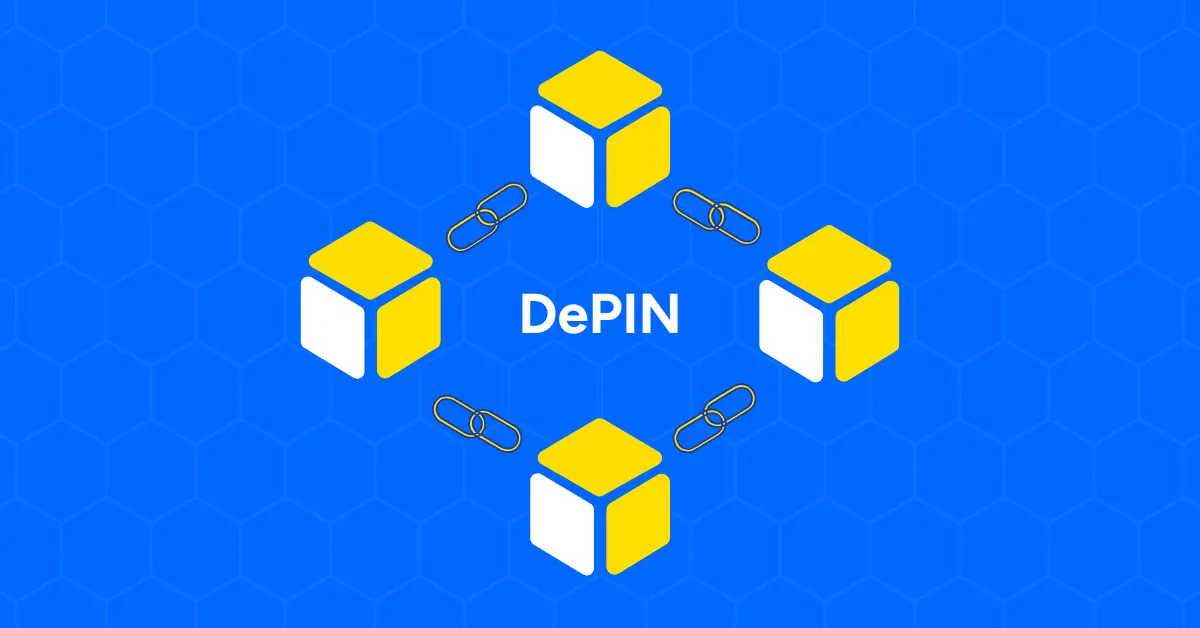
6 months ago
Exploring the Investment Potential of Decentralized Physical Infrastructure Networks (DePIN)
The recent analysis of Decentralized Physical Infrastructure Networks (DePIN) highlights its potential as a significant investment track in the cryptocurrency landscape. DePIN, which aims to decentralize the infrastructure of the physical world, is gaining traction alongside AI as a promising direction for investment. However, the sector currently lacks a leading project to catalyze its growth, with Helium being the most recognized name, albeit predating the DePIN concept. The analysis suggests that DePIN could yield substantial returns in the next 1-3 years, as it addresses real-world needs through decentralized solutions, such as reducing costs in telecommunications and AI data acquisition.
The investment rationale for DePIN is grounded in its ability to optimize traditional infrastructure models. For instance, in the telecommunications sector, traditional operators face exorbitant costs for spectrum licenses and base station deployments. In contrast, Helium Mobile allows users to become micro-operators by purchasing affordable hotspot devices, significantly lowering deployment costs. Similarly, in the AI domain, projects like Grass leverage distributed web scraping to reduce data acquisition expenses while ensuring compliance and diversity. These examples illustrate how DePIN can outperform conventional methods, making it an attractive investment opportunity.
Moreover, DePIN presents a unique intersection of infrastructure and consumer needs, addressing the challenges faced by both sectors. High-quality DePIN projects exhibit strong product-market fit and revenue generation, making them less susceptible to market volatility. As demonstrated by Helium's competitive pricing and Grass's user-friendly model, DePIN can effectively capture user interest and mindshare. While the path to widespread adoption may be gradual, the potential for DePIN to disrupt traditional industries and create sustainable value through innovative token economies is significant, positioning it as a focal point for investors looking ahead to 2025.

6 months ago
Comparing Web3 Cloud Solutions: Phala Cloud, Akash Network, and Fleek
In the rapidly evolving landscape of Web3 cloud solutions, selecting the right platform is crucial for the success of your project. This article compares three notable options: Phala Cloud, Akash Network, and Fleek, each catering to different needs. Phala Cloud focuses on privacy-preserving computation with TEE-backed GPU enclaves, making it ideal for secure AI applications. Akash Network offers a decentralized compute marketplace, perfect for machine learning training and scalable backends. Meanwhile, Fleek specializes in edge and static hosting, providing a user-friendly experience for deploying frontend applications. Understanding these platforms' strengths can guide developers in making informed decisions based on their unique requirements.
The architecture and core features of these platforms highlight their distinct technical foundations. Phala Cloud utilizes peer-to-peer enclaves for execution, ensuring a high level of confidentiality with on-chain attestation. Akash Network operates through a container marketplace orchestrated by Kubernetes, allowing for flexible resource allocation. Fleek, on the other hand, focuses on edge hosting and static site deployment, offering minimal backend trust features. Each platform has its own key management approach, with Phala emphasizing self-custodied keys, while Akash relies on provider-managed key stores. These differences are essential for developers to consider when aligning their project needs with the right cloud solution.
Finally, the cost models and tooling available on each platform further differentiate them. Phala Cloud operates on a prepaid credit system, providing predictable pricing for users. Akash Network's spot bidding model introduces volatility but can lead to significant savings for compute-intensive tasks. Fleek offers a free tier, making it accessible for small-scale projects. Developers should also consider the tooling and integrations each platform provides, as these can impact the ease of deployment and ongoing management. By leveraging the strengths of Phala, Akash, and Fleek, developers can create resilient and efficient Web3 applications tailored to their specific needs.

6 months ago
Filecoin Achieves Major Milestone in Decentralized Data Storage
Filecoin, the decentralized data storage network built on blockchain technology, has reached a significant milestone by securing 2.1 exbibytes (EiB) of data storage. This achievement not only places Filecoin at the forefront of the decentralized storage industry but also highlights its capacity to scale in response to the increasing demand for decentralized data solutions. With an additional 7.6 EiB of raw storage capacity available, Filecoin demonstrates resilience amidst market fluctuations and broader economic uncertainties in the tech sector, solidifying its influence in the industry.
A pivotal factor in Filecoin's rapid growth is the introduction of the Filecoin Virtual Machine (FVM) in March 2023, which has enabled the deployment of over 3,700 independent smart contracts. This development enhances the network's capabilities, supporting decentralized applications (dApps) and contributing to a total value locked (TVL) of 63 million FIL (approximately $273 million). The FVM is facilitating the expansion of decentralized storage beyond traditional Web2 applications, aiming to develop a fully decentralized internet that prioritizes data privacy and user sovereignty, marking a significant step in Filecoin's journey within the Web3 space.
Moreover, Filecoin is transitioning into a decentralized physical infrastructure network (DePIN), aligning with trends in decentralized computing and artificial intelligence (AI). This shift opens new avenues for enterprise adoption, allowing organizations to utilize decentralized data storage for various applications. The launch of new data services, including persistent storage and data privacy solutions, exemplifies this transition. With a remarkable uptime of 99.99% over the past 90 days, Filecoin ensures reliability for its users while fostering community engagement through regular updates and discussions. As the decentralized storage market matures, Filecoin's advancements reflect its leadership and commitment to shaping the future of decentralized infrastructure.
Signup for latest DePIN news and updates